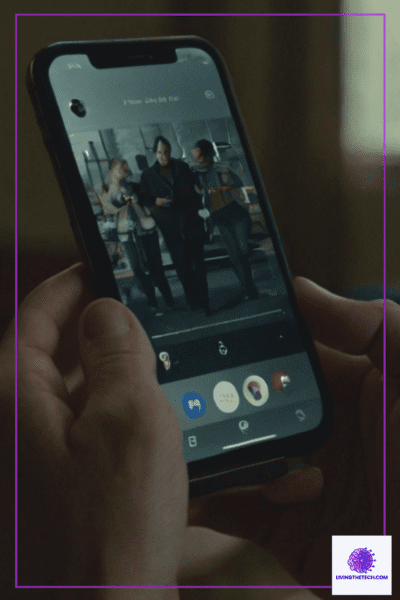Why Digital Culture Might Be the Biggest Threat to Society
Curious how tech is quietly reshaping your life? Dive into the digital culture shift and discover what’s changing and what it means for you. Let’s explore how digital culture is quietly reshaping how we work, connect, and live. Discover the real impact of tech on today’s society and future.
Digital Culture is in full swing, shaping our society and communities in ways we never thought possible. From the way we communicate to the way we work, technology has completely transformed our world. In this article, we will explore the impact of social media trends, the changing landscape of communication and entertainment, and the implications for future interactions and experiences.
We will also delve into the economic impact, the changing work environment, and the role of information and knowledge in this digital age. As we navigate these changes, we must also consider the challenges and considerations that come with them, including privacy, security, mental health, and ethical considerations. Join us on this journey as we examine how the digital culture is reshaping our daily lives and the importance of harnessing technology for the betterment of society and our communities.
The Impact of Social Media Trends
One of the most prominent aspects of digital culture is the influence of social media trends on our daily lives. From viral challenges to hashtag campaigns, social media has become a powerful tool for communication, connection, and influence. As platforms like Facebook, Snapchat, Instagram, X, and TikTok continue to evolve, they shape not only how we interact with one another but also how we consume information, news and entertainment. Heading into the realm of transforming communication and entertainment, let’s explore how these social media trends are redefining our cultural landscape and shaping the way we engage with content in this digital age.
Transforming Communication and Entertainment
Social media trends not only impact how we communicate and connect with others, but they also heavily influence the entertainment we consume. Platforms like Instagram, TikTok, and YouTube have given rise to a new generation of content creators who are redefining what it means to be entertained. Whether it’s through short-form videos, live streams, or interactive storytelling, social media has opened up new avenues for creativity and engagement in the digital age. As we continue to witness the transformation of communication and entertainment through these platforms, it’s clear that the way we interact with content is evolving at a rapid pace, setting the stage for future interactions and experiences in the digital landscape.
Implications for Future Interactions and Experiences
With the continuous evolution of technology and its influence on communication and entertainment, the implications for future interactions and experiences are significant. As advancements in digital platforms shape the way we engage with content, we can expect to see a continued shift towards more dynamic and immersive experiences.
This trend towards interactivity and personalisation is likely to redefine how we connect with others and consume media, paving the way for innovative forms of engagement in the digital realm. As we look ahead, these changes will undoubtedly have profound effects on not only how we interact with content but also on the overall landscape of our digital experiences. This transformation sets the stage for exploring the economic impact of technology on our culture.
Digital Culture and the Economic Impact
As we navigate the changing landscape of digital technology, it’s impossible to overlook the profound economic impact it has on our culture. The rise of e-commerce, digital marketing, and online platforms has revolutionised the way businesses operate and connect with consumers. From small businesses to multinational corporations, digital culture has created new opportunities for growth and innovation. As technology continues to shape consumer behaviour and market trends, businesses must adapt and evolve to stay competitive in an increasingly digital world. This shift in the economic landscape has far-reaching effects on industries, job markets, and consumer spending habits, setting the stage for a new era of economic prosperity and uncertainty.
This transformation in the economic sphere also extends to the way we work and interact in our professional and work environments.
Changing Work Environment
One of the most noticeable changes brought about by digital culture is the transformation of the work environment. With the rise of remote work, flexible hours, and digital collaboration tools, professionals now have the flexibility to work from anywhere in the world. This shift towards a more digital and flexible workplace has improved work-life balance for many employees and increased productivity and efficiency in many industries. As technology advances, the way we work is constantly evolving, requiring our people and teams to adapt and learn new skills to keep up with the changing demands of the digital age.
Digital culture plays a critical role in supporting digital transformation for organizations by fostering an environment that embraces innovation, technology, and agility. As employees and leaders adopt digital tools and mindsets, they become more open to new ways of working, collaboration, and problem-solving. A strong digital culture encourages continuous learning, adaptability, and data-driven decision-making, which are essential for implementing new technologies and streamlining processes. Ultimately, digital culture enables organisations to stay competitive and responsive in an ever-evolving digital landscape.
“Digital culture goes hand in hand with the process of digital transformation, being both a premise to, and an outcome of it. As a premise, digital culture can be either an enabler for, or a barrier to digital transformation”. Diana Andreea Firican (Digital Transformation and Digital Culture: A Literature Review of the Digital Cultural Attributes to Enable Digital Transformation, 2023).
This transformation in the work environment sets the stage for a new era of information and knowledge sharing, where the boundaries between work and personal life are blurred, and access to information is more abundant than ever before.
Information and Knowledge
In this era of information and knowledge sharing, the boundaries between work and personal life are blurred, with access to information more abundant than ever before. This shift has led to a more interconnected world where ideas and insights can be easily exchanged across borders and cultures. As we navigate this digital landscape, it is important to consider the challenges that come with this constant sharing of information and the implications it may have on our society as a whole.
Related Post: Beware of Sharing Personal Information – A Parent’s Guide
Challenges and Considerations of Digital Culture
One of the challenges posed by digital culture is the potential for information overload. With the vast amount of content available online, it can be difficult to sift through the noise and find reliable sources of information. Additionally, the speed at which information spreads can lead to misinformation and the spread of fake news, presenting a threat to our society’s understanding of the truth.
Another consideration is the impact of technology on jobs and the economy. As automation and artificial intelligence (AI) continue to advance, there is a growing concern about the displacement of workers and the widening gap between the wealthy and the working class. We must address these issues and explore sustainable solutions to ensure that the benefits of technology are equitably distributed among all members of society.
Furthermore, digital culture has raised significant ethical questions regarding privacy and data security. The collection and use of personal data by technology (AI) and social media platforms (Facebook), corporations and governments have sparked debates about the boundaries of surveillance and the protection of individual rights. As we continue to rely on technology in our daily lives, it is essential to prioritise safeguarding sensitive information and advocate for policies that uphold the privacy of individuals in an increasingly connected world.
Privacy and Security
Digital Culture has raised significant ethical questions regarding privacy and data security. The collection and use of personal data by corporations and governments have sparked debates about the boundaries of surveillance and the protection of individual rights. As we continue to rely on technology in our daily lives, it is essential to prioritise safeguarding sensitive information and advocate for policies that uphold the privacy of individuals in an increasingly connected world.

This emphasis on privacy and security is closely intertwined with the growing concerns about the impact of technology on mental health. That said, we can ensure our data is safe to a point by enabling strong authentication. What we can’t guarantee is that our data is safe with third parties, given the seemingly endless reports of data breaches around the globe. This leads to further pressure on our mental health, especially if our data has been involved in a breach.
CSO Online has published The 18 biggest data breaches of the 21st century, with some big companies on this list, such as Yahoo, Aadhaar, LinkedIn and Facebook, which highlights that no one is safe.
Mental Health
As technology continues to shape our culture, it is crucial to consider its impact on mental health. The constant connectivity and exposure to social media can lead to feelings of isolation, anxiety, and depression for many individuals. The pressure to constantly present a curated version of our lives online can contribute to a sense of inadequacy and comparison with others. Additionally, the addictive nature of smartphones and digital devices can disrupt sleep patterns and overall well-being. We need to be mindful of our usage and prioritise self-care in an increasingly digital world. This awareness of the effects on mental health sets the stage for further exploration of ethical considerations in how technology shapes our society.
Related Post: Mental Health: 8 Ways to Find Balance in a Digital World
Ethical Considerations
As technology continues to advance and intertwine with our daily lives, it becomes essential to address the ethical implications of these digital innovations. From data privacy concerns to the impact of algorithms on society, ethical considerations play a crucial role in shaping the future of technology. As we navigate this digital landscape, it is important to reflect on the potential consequences of our actions and decisions. Our ethical framework can guide us in creating a more responsible and sustainable digital culture. This awareness of ethical considerations paves the way for a deeper exploration of the digital divide, highlighting the disparities in access to technology and its implications on our society.
The Digital Divide
The digital divide is a pressing issue that continues to widen the gap between those who have access to technology and those who do not. This divide encompasses not only access to hardware and internet connectivity but also digital literacy and skills. As society becomes increasingly reliant on technology for everyday tasks, those without access or knowledge are at a significant disadvantage. This disparity can further exacerbate existing social inequalities and hinder individuals from fully participating in the digital world.
Communities that lack access to technology face barriers in areas such as education, employment, healthcare, and civic engagement. Without the ability to navigate the digital landscape, individuals may struggle to access essential services, pursue educational opportunities, or communicate effectively in an increasingly virtual world. Bridging the digital divide is crucial in ensuring that all members of society have equal opportunities to thrive in the digital age.
Addressing the digital divide requires a multifaceted approach that includes expanding access to affordable technology, providing digital literacy training, and promoting equitable internet connectivity. By investing in initiatives that aim to close this gap, we can empower individuals and communities to fully embrace digital culture. As we strive to create a more inclusive digital culture, we must prioritise efforts to bridge the digital divide and ensure that no one is left behind in the fast-paced world of technology.
The Ever-Evolving Nature of Digital Culture
In this digital age, the way we communicate, work, and interact with each other is evolving at an unprecedented rate. From the influence of social media trends to the economic impact and changing work environments, digital culture is shaping our daily lives at a rapid rate. As we navigate these changes, it’s essential to consider the implications for privacy, collaboration, and education, ensuring that we harness the power of technology for the betterment of society.
Let us remember that in this ever-changing digital landscape, staying mindful of the consequences and opportunities that technology presents is key to creating a more connected and prosperous future for all.
“The world as we have created it is a process of our thinking. It cannot be changed without changing our thinking.” Albert Einstein.


